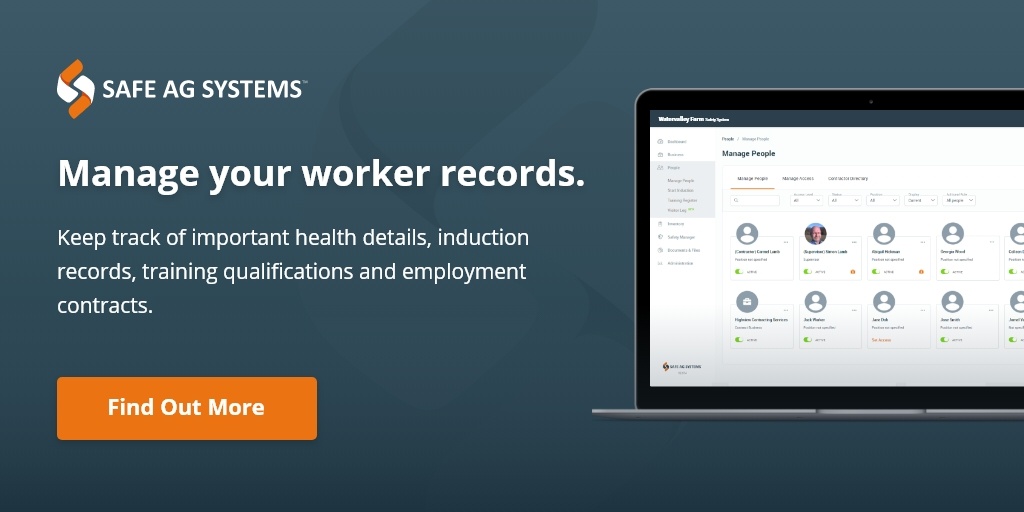As an individual, we all have our own health concerns. Whether it's the damaged knee from that old footy injury, high blood pressure, or a mental health condition, we've all been to the GP and understand our own limitations. But it's important health conditions are shared between employee and employer to ensure that if anything happens on-the-job, the most accurate emergency response can be provided.
As an agricultural employee, it's up to you as to how much information you share with your employer. However, with the protection of workplace laws and regulations, the more detailed the information you can provide, the more likely you will be able to access tailored help in an emergency.
As a person conducting a business or undertaking (PCBU), it is your responsibility to ensure you know your farm workers and maintain employee records including any pre-existing health conditions they may have. Consider the following scenario and the two alternatives:
An employee has diabetes but hasn't told you about it. They begin to look pale and sweaty and start shaking. They're experiencing a hypoglycaemia episode where their blood sugar level drops too low. Without knowing what is causing them to feel unwell, you're unsure how to help and encourage them to keep working. Then they pass out. Without knowing what caused them to pass out, you have no idea how to treat them and can't provide much-needed information to emergency services when they arrive, and your worker is hospitalised.
The alternative: you know your employee has diabetes and you immediately recognise the symptoms of a hypoglycaemia episode. You grab the snacks you have stored in the workshop as a back-up and encourage your worker to eat some jelly beans and have a break for at least 15 minutes. The low passes with no injury to your worker, and you can both move on with your days. You also put a plan in place to ensure your worker has regular meal breaks to keep their blood sugar levels steady.
As part of your farming induction process, and on an ongoing basis, ask your workers about their health details, if they have any medical conditions they would like to share with you in order to update their health records.
- Encourage them to be honest and open and reassure them you will not use the information to their disadvantage, but rather allow it to assist you in any emergency. You need to understand any additional risks to ensure a safe and healthy workplace.
- If employees would prefer not to talk to you about their condition, ask them to supply a written note.
- Gather the following information:
- What is the diagnosis?
- What are the symptoms?
- Are there any potential complications, for example, if medication is missed?
- Are there any limitations in performing the job?
- Are they taking any medications or undertaking treatment?
- It is also advisable to store doctor and specialist details in case of emergency.
- Keep a record with your policies and procedures.
Keep reading our blog for more tips and hints on how to keep your farm safe.
Topics: Safety Management System
Disclaimer: Content on this website may be of relevance to users outside of Australia, but content links and examples are specific to Australia. Please check with your local authority for your country and industry requirements.











